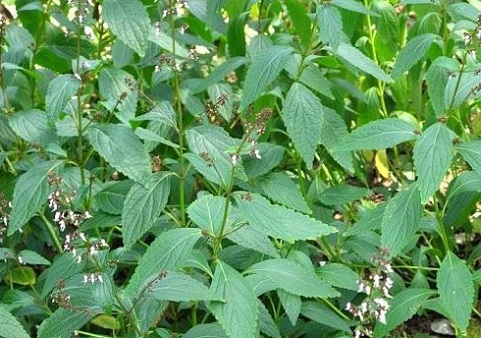Herbs And Phytochemicals: Methyl Rosmarinate From Rabdosia Serra Is An Allosteric Inhibitor Of SARS-CoV-2 3CL Protease
Nikhil Prasad Fact checked by:Thailand Medical News Team Feb 25, 2024 1 year, 10 months, 4 days, 15 hours, 3 minutes ago
Herbs And Phytochemicals: The relentless grip of the COVID-19 pandemic caused by the severe acute respiratory syndrome coronavirus 2 (SARS-CoV-2) has persisted for over three years, posing significant threats to global health and economies. Amid this crisis, traditional Chinese medicine (TCM) has emerged as a vital component in the clinical treatment of COVID-19 patients in China. However, understanding the molecular mechanisms underlying the active ingredients in TCM prescriptions remains a formidable challenge.
 Rabdosia Serra
Rabdosia Serra
In this
Herbs And Phytochemicals study, researchers from Shanghai University of Traditional Chinese Medicine, China Pharmaceutical University, Fudan University, East China Normal University, and Hunan Normal University collaborated to pioneer a novel approach for the rapid discovery of active ingredients from TCM prescriptions. The study focuses on methyl rosmarinate, an allosteric inhibitor of SARS-CoV-2 3CL protease, isolated from the herb Rabdosia serra.
Methodology
To expedite the identification of active ingredients, the researchers integrated experimental assays, virtual screening, and subsequent experimental verification. Four TCM prescriptions with proven antiviral effects were chosen: Xuebijing injection, Tanreqing capsule, Lingmao formula, and Baqi Lingmao formula. These prescriptions have shown efficacy in treating COVID-19 patients, including reducing disease severity and preventing adverse effects.
The 3-chymotrypsin-like protease (3CLpro), a crucial target in combating COVID-19, was selected to assess the inhibitory activity of TCM prescriptions and their individual herbal components. A fluorescence resonance energy transfer (FRET) assay was employed to quickly identify effective single herbs from the selected TCM prescriptions.
Results
Ten out of 21 single herbs exhibited notable inhibitory activities against SARS-CoV-2 3CLpro, paving the way for a more focused investigation. Utilizing the TCM systems pharmacology database and analysis platform (TCMSP), a preliminary screening library was established based on the ingredients within these selected herbs. Nineteen ingredients were chosen for further experiments, leading to the identification of four active components: robinetin, oleuropein, pentagalloylglucose, and methyl rosmarinate.
Methyl rosmarinate stood out as a potent allosteric inhibitor of SARS-CoV-2 3CLpro, demonstrating a strong inhibitory effect with an IC50 value of 2.50 μM in the FRET assay. Importantly, the compound's ability to inhibit viral replication was confirmed using the SARS-CoV-2 replicon system.
Mechanism of Action
The study delved into the binding mode of methyl rosmarinate, employing various techniques such as mutation experiments, circular dichroism (CD), enzymatic inhibition, and surface plasmon resonance (SPR) assays. These analyses collectively demonstrated that methyl rosmarinate binds to the allosteric site of SARS
-CoV-2 3CLpro, providing valuable insights into its inhibitory mechanism.
Implications and Conclusion
This research strategy offers a streamlined approach for the rapid discovery of active ingredients in TCM prescriptions, focusing on specific targets such as SARS-CoV-2 3CLpro. Methyl rosmarinate emerges as a promising antiviral therapeutic candidate against SARS-CoV-2 infection, showcasing its potential for further development.
The COVID-19 pandemic prompted the National Health Commission (NHC) of the People's Republic of China to release multiple versions of diagnosis and treatment guidelines. TCMs have been prominently featured in these guidelines, offering a range of treatments from the medical observation period to severe and critical stages of the disease.
In conclusion, the study not only contributes to the understanding of the molecular mechanisms of active ingredients in TCM prescriptions but also highlights the potential of methyl rosmarinate as an effective allosteric inhibitor against SARS-CoV-2 3CLpro. This groundbreaking research may pave the way for the development of new antiviral therapeutic strategies in the ongoing battle against COVID-19.
The study findings were published as a pre-proof in the peer reviewed journal: Antiviral Research.
https://www.sciencedirect.com/science/article/abs/pii/S0166354224000494
For the latest on
Herbs And Phytochemicals, keep on logging to Thailand Medical News.
